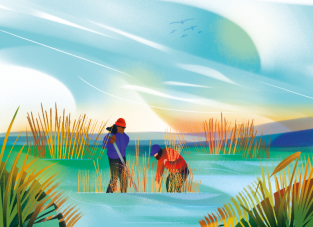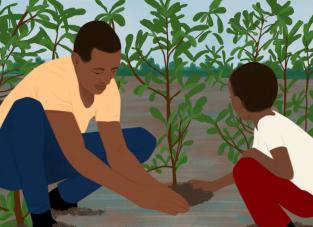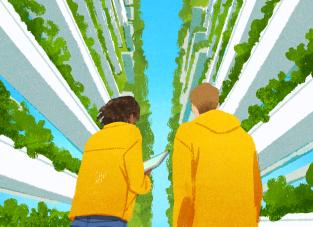Food Waste Reduction
Local Project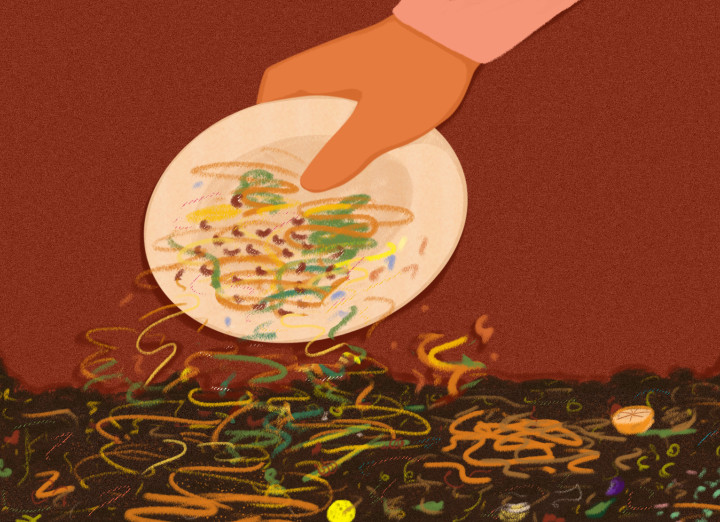
Food production and food waste are among the single biggest contributors to the climate emergency. They’re also one of the most solvable.
Food production, or agriculture, comes at a huge cost to the climate. Converting wild areas to farmland, fertilizing crops, raising animals, and using energy to grow, harvest, transport, and prepare food combine to make up one-quarter of the world’s total human-caused global greenhouse gas emissions. Yet nearly one-third of all of the food the world’s farmers grow ends up spoiled, discarded, or simply unused.
Part of the problem with food waste is that for big companies it can be more profitable to throw away food than to save it, leading to poor management of supply chains and over-ordering. Infrastructure can also be a limiting factor, with pests, harvest problems, transportation, and food storage being logistical challenges. Another part is awareness: many people don’t realize that wasting food contributes to the climate emergency.
Reducing food waste is a huge win for both our planet and people. It not only benefits the climate, it also alleviates hunger, saves consumers money, and helps protect biodiversity, water quality, and more.
You must have 2 Ecology tags in this card's stack to take this action.
Remove 1 Waste Emissions token from your player board.
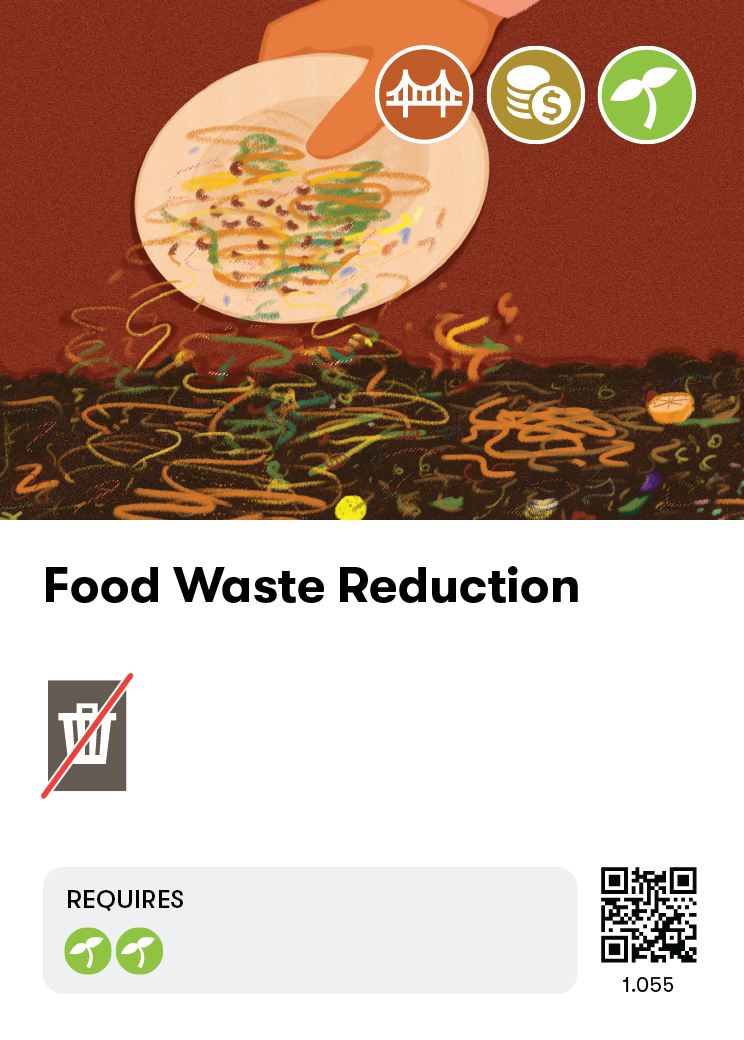
Reduced Food Waste (Project Drawdown)
Circular Economy and Food (Ellen MacArthur Foundation)
What we know about climate change and inflation (Centre for Economic Policy Research)
Campaign for governments to introduce food waste reduction requirements and fair wages for agricultural workers domestically and abroad.
Ask your supermarkets, restaurants and meal events organizers of choice to reduce their food waste by working with food rescue services.
Help set up composting and food waste services, with your family, neighbors and/or colleagues.
Plan meals before you shop.
Store food properly.
Learn about date labels and adjust your practice accordingly.
